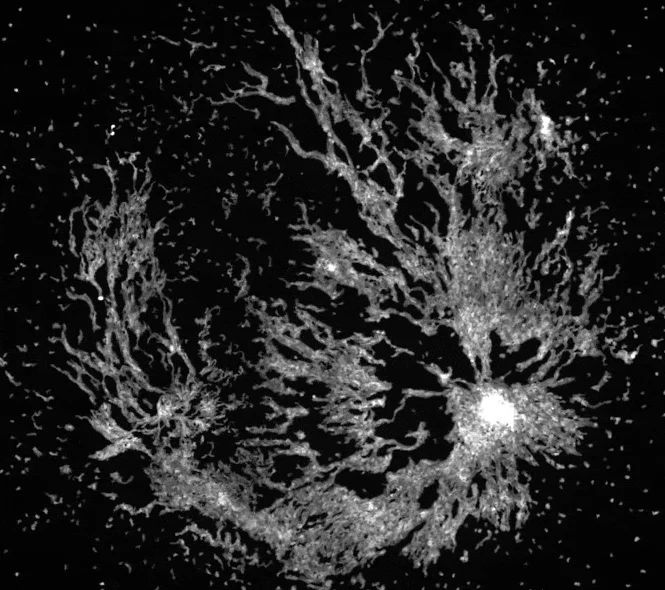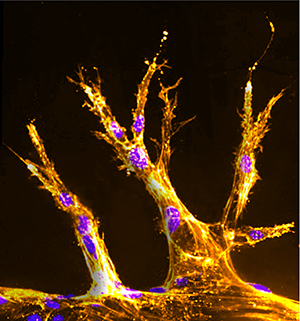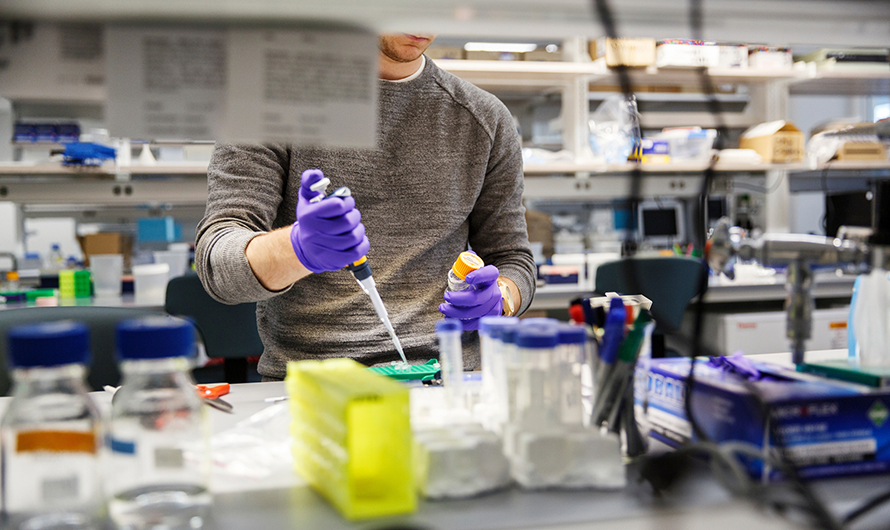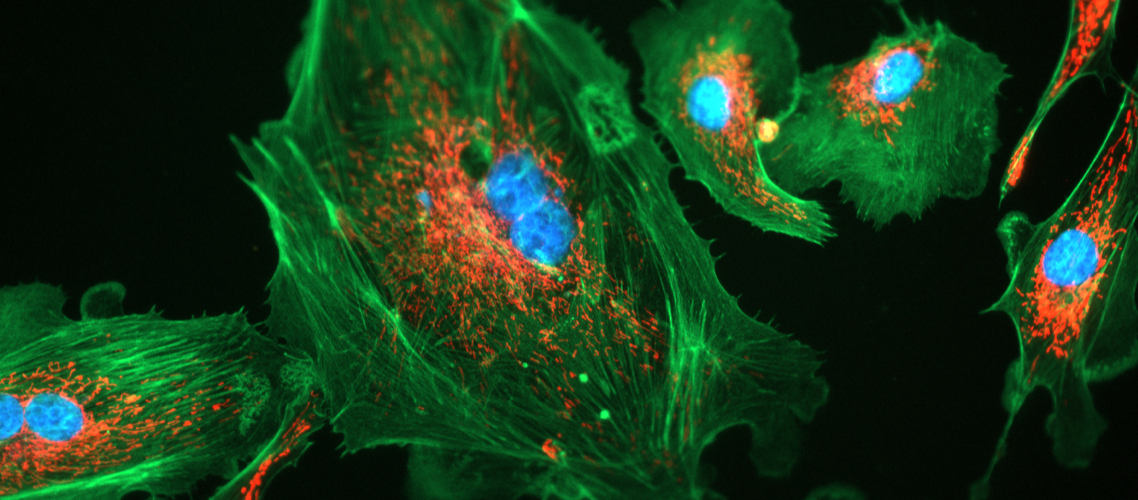The Biological Design Center brings together diverse research areas to generate groundbreaking ideas and biomedical technologies. The genomics era has generated comprehensive inventories of biology’s molecular raw materials, while advances in stem cell research are defining and supplying the catalog of cell types that make up organisms. A grand challenge now is to understand, control, and re-engineer how these component parts fit together to bring about the many unique biological systems, structures, materials, and processes that define life. Unlocking this underlying design logic of biological systems will revolutionize our approach to medicine, energy, and the environment.
Spanning synthetic biology, cell and tissue assembly, systems biology, computational biology, and sophisticated modeling, the Biological Design Center is positioned to lead this revolution. We aim to accelerate the transformation of these fields by providing international leadership through pioneering research, education, and outreach – establishing ourselves as a recognized home for design and innovation in biology.
1. A world-class team of scientists
 Under the Center’s auspices, scientists from both industry and academia collaborate to tinker, invent, and discover.
Under the Center’s auspices, scientists from both industry and academia collaborate to tinker, invent, and discover.
The center seeks to foster unconventional mixing and matching of disparate research areas to create disruptive ideas and technologies in harnessing biology. We draw in scientists from industry and academia alike to tinker, invent, and discover under the center’s auspices.
Our distinctive facilities are designed to bolster collaboration: they bring together scientific minds both physically and intellectually and promote a constant flow of ideas, thereby invigorating and energizing our scientific directions. We use forward engineering technologies to build biological devices and systems.
2. A community dedicated to progress— both scientific and professional.

The Biological Design Center is a dynamic, collaborative environment that supports trainees interested in academic or industry careers. We recognize that the career landscape is changing for graduates and, in response, we are building new training opportunities to prepare the next generation of scientists, inventors, entrepreneurs, and policy makers.
Technical expertise represents a single dimension in building a successful career. Therefore, in addition to training exceptional technical and critical thinking skills, we are committed to helping our trainees build their professional skills and networks that are so critical to success. These include a variety of formal and informal training opportunities, career discussions and panels, professional skills workshops, and trainee-led speaker series. We have close relationships with exceptional local programs and agencies that provide additional training opportunities for our trainees, from professional skills to translational and entrepreneurship training, both on-site and off.
3. Sustainable success for real-world impact
 At the Biological Design Center, we continue to build and expand our network of connections with leading scientists from academia and industry in order to maximize the real-world impact of our research.
At the Biological Design Center, we continue to build and expand our network of connections with leading scientists from academia and industry in order to maximize the real-world impact of our research.
Our teams translate their exciting discoveries to industry in a variety of ways from sponsored research, licensing agreements, and spinning research out into startup companies. We engage deeply with local entrepreneurs, funding groups, startup companies, pharma, government, and even non-profit research groups to better understand real-world needs and to connect our trainees beyond the bench.
In addition to formal and informal connections to scientists and engineers from across the biotech spectrum, we have partnerships with local industry and academic groups focused on professional and entrepreneurial development. Through these connections, including the Boston Biomedical Innovation Center (B-BIC), Harvard Catalyst, MassBio, the Institute for Biomedical Entrepreneurship and more, we are also working on building new types of platforms and partnership models to share our research, expertise, and know-how in cellular engineering, devices, and more.
“This is a unique approach to using engineering principles to understand and exploit biology. Very few people are using bioengineering techniques to help discover fundamental principles that govern biological systems—especially across multiple levels, from genes to entire organ systems.”
— Kenneth Lutchen, Dean, BU College of Engineering
4. An environment of inclusion

We are proud to say that our scientists and trainees come from all walks of life. We seek great minds that can transform science and technology and we believe those minds must be progressive, collaborative, and inclusive. Our community welcomes people from a wide variety of backgrounds, not just because it’s the right thing to do, but because it makes the scientific enterprise stronger. If you share our values and our enthusiasm for biological design, please join us or come by for a visit!
